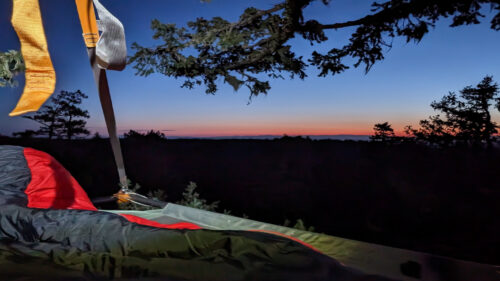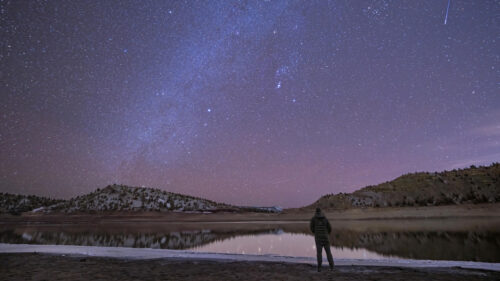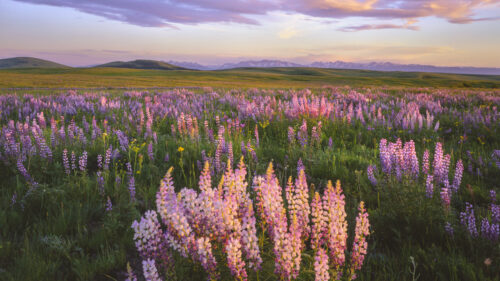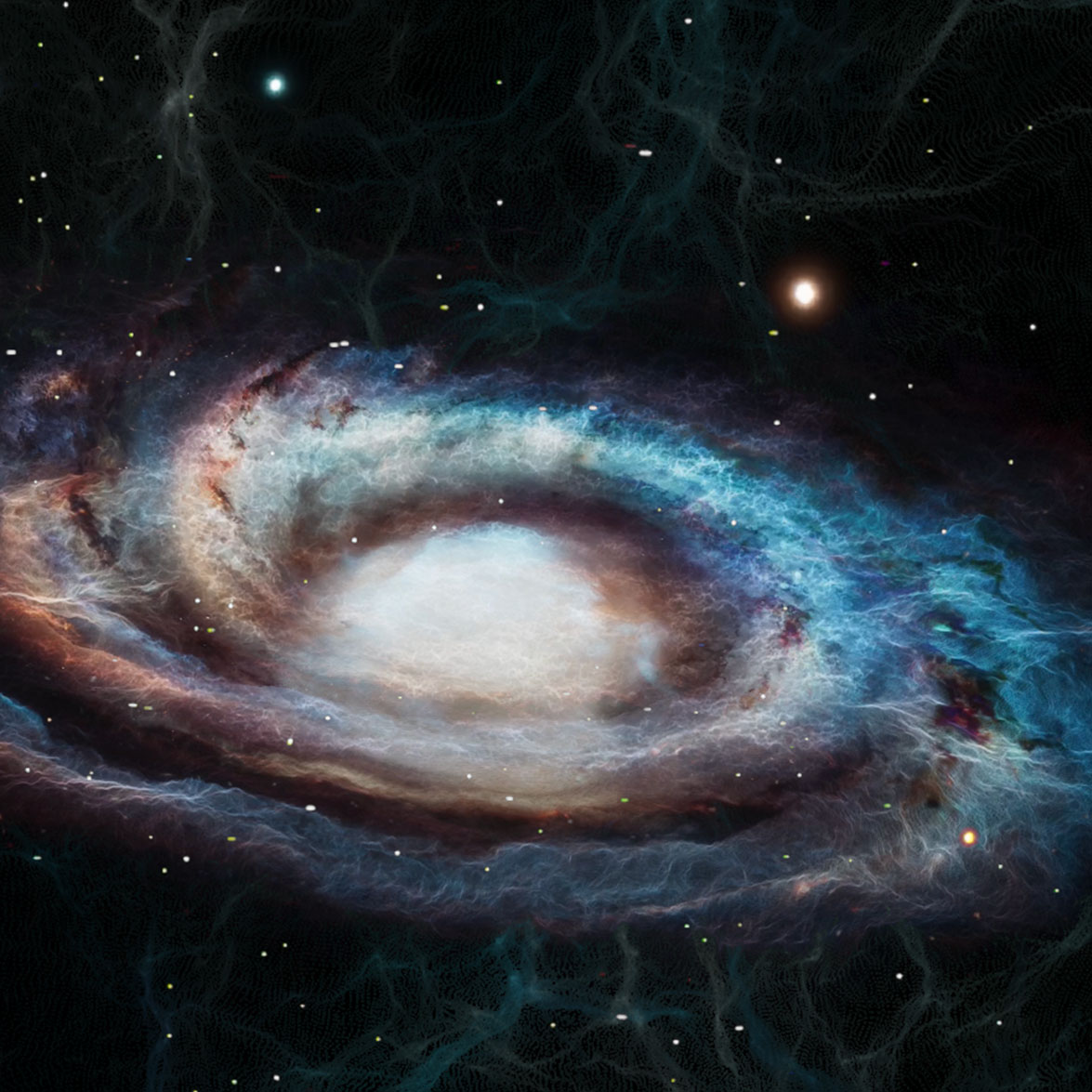When it comes to incredible dark skies, residents and visitors across Oregon are lucky to enjoy an array of options. Light-pollution maps show large swaths of gray and black in the region, especially in Oregon’s remote high-desert landscapes.
In fact, this part of what’s known as the Oregon Outback is so ideal for stargazing that it is newly designated as the Oregon Outback International Dark Sky Sanctuary — a total of 2.5 million acres of land located within the largest contiguous pristine dark-sky zone in the lower 48 states.
This designation by DarkSky International comes after several years of collaborative efforts by the Oregon Outback Dark Sky Network — a group of partners including community members, local tribes, government agencies, landowners and others. The region is noted for its “extremely dark skies and is protected for its scientific, natural, or educational value to recognize and preserve such places.” The sanctuary area meets strict criteria for sky quality, natural darkness and commitment to protecting the night sky through responsible lighting practices.
Dark sky sanctuaries throughout the world provide opportunities for stargazing, astrophotography and other nighttime activities that require clear skies and minimal light pollution, and this is Oregon’s first.
The sanctuary area includes the Southern Oregon communities of Adel and Plush, Summer Lake and the Hart Mountain National Antelope Refuge. It’s full of unique geography and is a popular habitat for wildlife including the American pronghorn, bighorn sheep, sage grouse, white-tailed jack rabbit and migratory birds navigating the Pacific Flyway. Visitors can also experience culturally significant sites like a 13,000-year-old human occupation site, hot springs, wild horses, private rangelands, ranches and lots of cattle.
“Clear and dark skies are the quest of an avid stargazer,” says Dawn Nilson, dark sky preservation director for the Rose City Astronomers. “That’s why high deserts and mountaintops are popular for amateur observing and scientific observatories.”
Here’s how to enjoy the night skies here and elsewhere across Oregon, year-round.
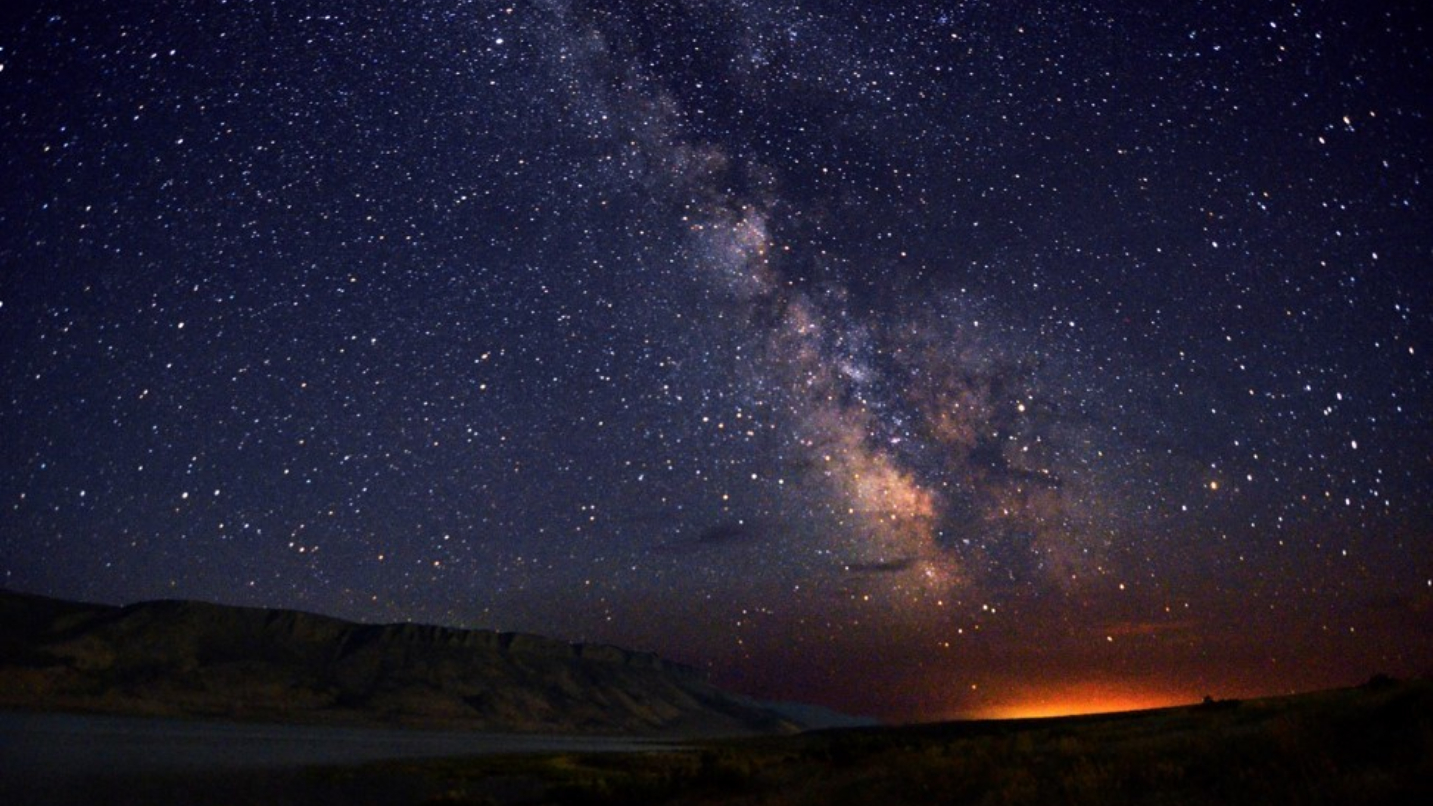
Find a Star Party
OMSI, Rose City Astronomers and Oregon Parks and Recreation invite visitors of all ages to their free summer star parties. These are held at Rooster Rock State Park (just east of Portland in Corbett) and L.L. Stub Stewart State Park (just west of Portland in Buxton), where the night skies are typically clear and excellent spots for viewing.
Volunteers bring telescopes for all to use, but bring your own telescope or binoculars if you like. Come to see the planets, moon, stars and other celestial sights and stay for the community. Look for these annual events: Summer Solstice Celebration (June), Lunar Viewing (July), Perseid Meteor Shower (August), Autumnal Equinox Celebration (September).
Join a Stargazing Event
Many organizations and businesses and communities in Oregon are hosting stargazing events at an all-inclusive price that includes a curated dinner, drinks, entertainment and use of telescopes to view the night sky. Here are a few — check the websites for dates and more info:
- July through October: The Carlton Observatory Project partners with a host of local vineyards for evening star parties. Proceeds benefit the nonprofit organization’s efforts to create a science center and planetarium for the public at the Evergreen Aviation & Space Museum in McMinnville. Check the lineup for upcoming events and ticket sales.
- August: Mt. Hood Meadows invites visitors to a pair of stargazer dinners — a scenic chair ride to the peak of Mt. Hood with a chance to view the sunset and enjoy the millions of stars and constellations at elevation when darkness falls. The event includes a space-themed multicourse dinner and is open to all ages with advance booking only. You can even make a weekend of it and camp at the mountain under the stars.
- September: The annual Stars Over Newberry includes stargazing at Lava Butte in Central Oregon; local beer, wine and food; art and music; a silent auction and a chance to help their mission to support stewardship in the Deschutes National Forest. It is hosted by the Bend-based nonprofit Discover Your Forest.
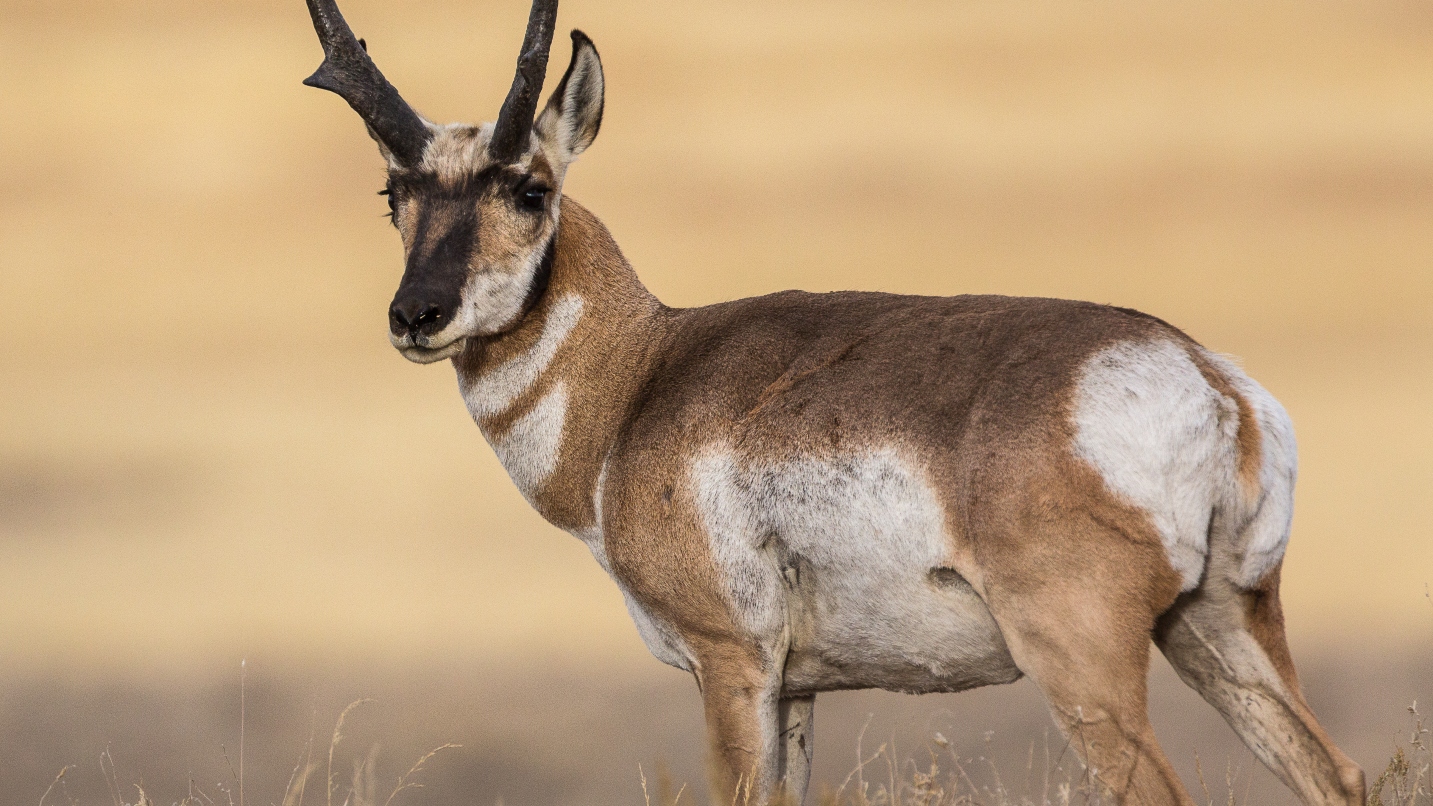
Top Spots in the Oregon Outback
The skies in Lake County are among the most pristine, and Hart Mountain National Antelope Refuge is an ideal spot that checks all the boxes. Remote, high and very dark, it’s located atop a fault block overlooking the Warner Valley. Primitive camping is available at the Hot Springs Campground; in fact, few experiences beat stargazing while soaking in a natural mineral bath. During the day you can hike, view pronghorn and search for petroglyphs. Nearby Lakeview also offers lodging.
Summer Lake is another choice spot in Lake County. Wildlife watchers frequent the marshes at the Summer Lake Wildlife Area for the outstanding birding, and there are many options for camping and lodging, including Summer Lake Hot Springs, a privately owned resort.
Heading west to Klamath County, Crater Lake National Park offers outstanding stargazing in a stunning setting. Located at the crest of the Cascade mountains, Crater Lake was created when Mt. Mazama blew her top 7,700 years ago, and it is fed by rain and snow. There are many options for camping and lodging nearby, including the iconic Crater Lake Lodge, although you will need to make reservations far in advance.
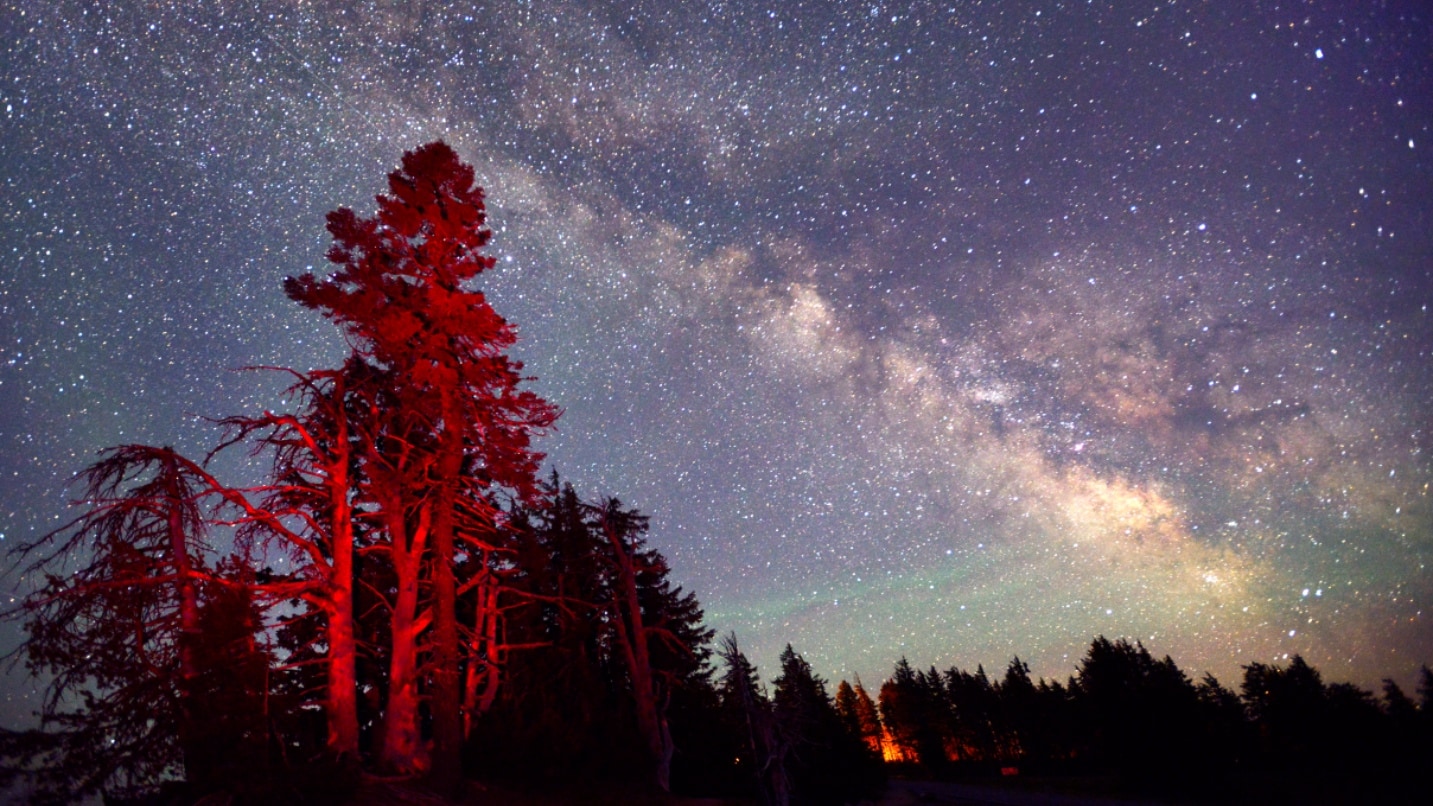
Fire Lookouts and Other Stellar Vantage Points
In Jackson County, Mt. Ashland offers a good vantage point for spotting constellations with the added advantage of year-round recreation: cross-country and downhill skiing at the Mt. Ashland Ski Area, plus mountain biking, hiking and camping during summer months. Head to Ashland for accommodations and an array of high-quality restaurants. Just east of Ashland is the Cascade-Siskiyou National Monument, where you can seek dark skies from a number of roads and trails, including the Pacific Crest Trail.
Fire lookouts are ideal for spying stars for the same reason they’re good for spotting “smokes”: They’re located on high points with unobstructed views. Several lookouts in the Southern Oregon region can be rented for overnight stays, including Acker Rock Lookout in the Umpqua National Forest. This lookout is perched on a sheer bluff; during the day, enjoy panoramic views of the Rogue-Umpqua Divide and tour the many waterfalls along the Umpqua River.
Other fire-lookout options include Pickett Butte Lookout, also in the Umpqua National Forest; Drake Peak Lookout in the Warner Mountains; Bald Butte Lookout in the Fremont-Winema National Forest near Paisley; Hager Mountain Lookout near Silver Lake; and Bald Knob Lookout in the Rogue River-Siskiyou National Forest.
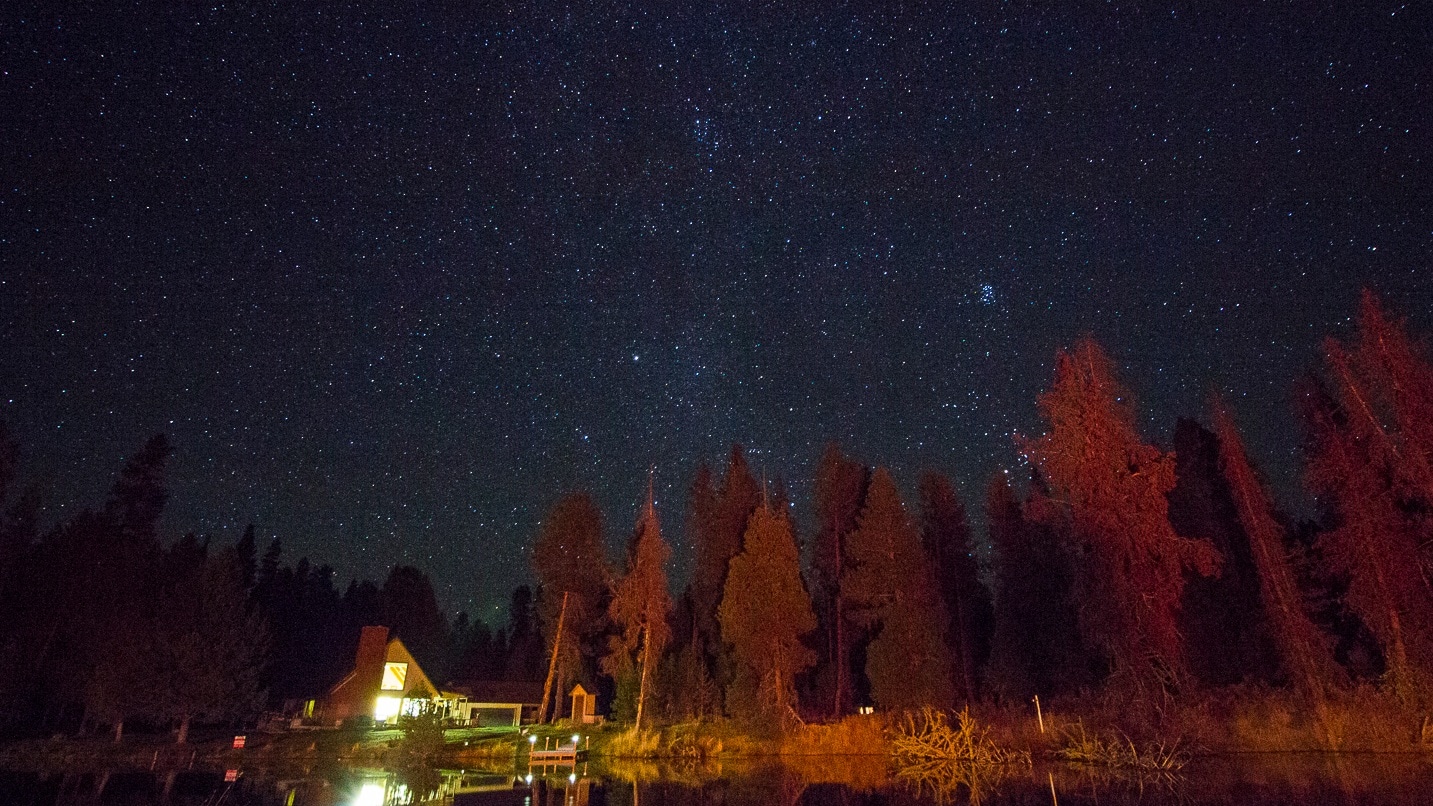
Meteor Showers, Eclipses, Quasars and More
Dark-sky adventures are about more than stars. If you time it right, you can also witness meteor showers, lunar and solar eclipses, and planetary conjunctions (also called alignments), which occur when two or more planets appear to be very close together in the sky. With visual aids, you may also be able to spot Deep Sky Objects, or DSOs, which include galaxies, nebulae, star clusters and quasars. Newbie sky watchers can find lots of resources, including a calendar of astronomical events to help guide your trip.
In Southwest Oregon, there are still plenty of opportunities to view a detailed Milky Way, though Nilson says that if more towns and public agencies adopted dark-sky-friendly lighting policies, our skies could be even darker.
“A natural dark sky is an unlimited renewable resource that is only being lost by naive or misinformed lighting choices that waste energy and blot out the stars,” says Nilson. Fortunately, light pollution is also one of the easiest forms of pollution to address.
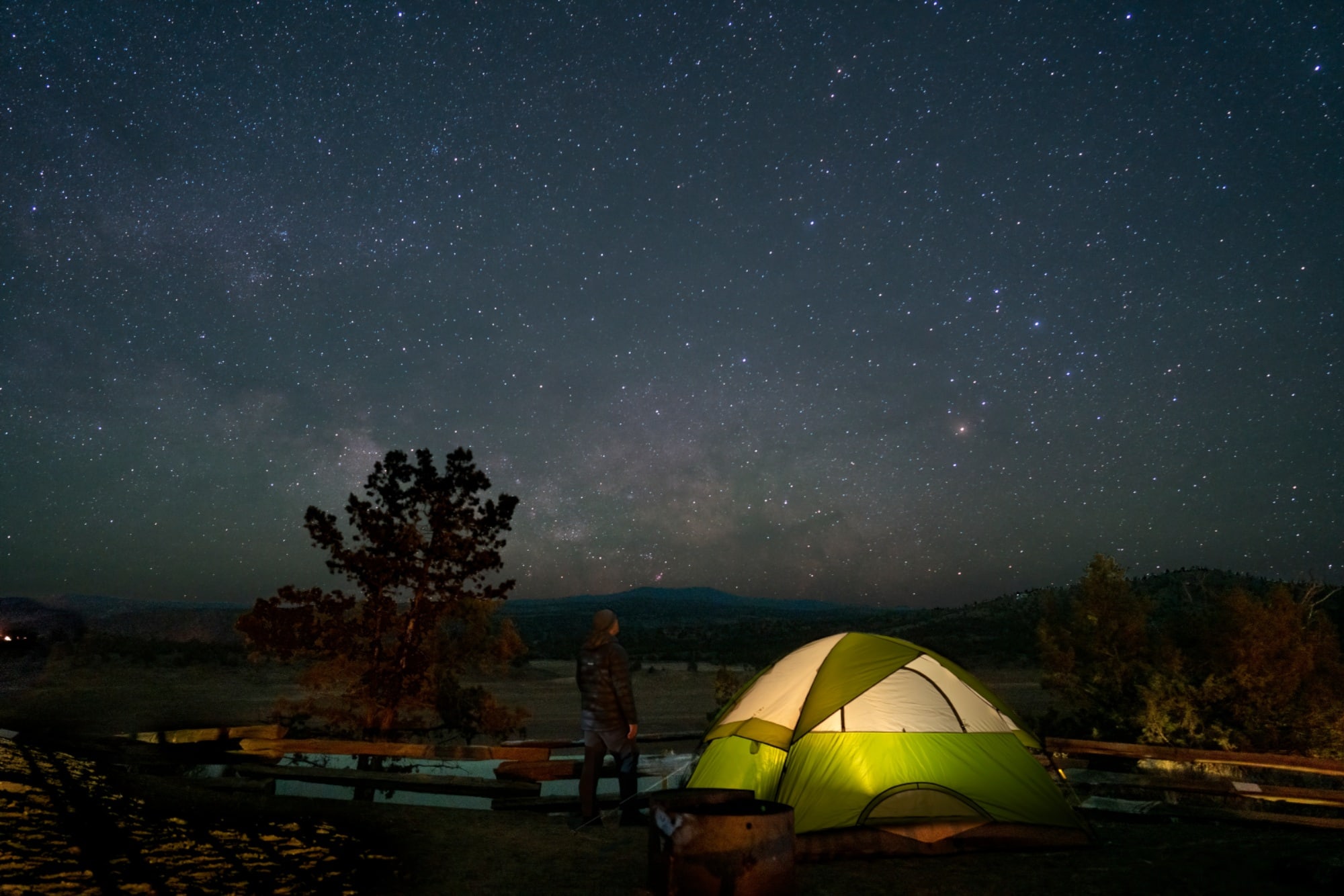
Oregon’s First International Dark Sky Park
If camping is your jam, or you’re in the Central Oregon area and looking for a genuine dark-sky experience, Prineville Reservoir State Park is Oregon’s first International Dark Sky park. Non-campers must obtain a free stargazer permit for the day-use area, while campers should book in advance for a tent spot, RV spot, cabin (regular or deluxe) or even a yurt at the two campgrounds. Book early for pet-friendly cabins.
Year-round, the campgrounds are an excellent place for fishing, boating and wildlife watching, as well as swimming in a roped-off area in the warmer months. Find both drive-in and boat-in campsites along the 15-mile long, 3,000-acre Prineville Reservoir, with 43 miles of shoreline and endlessly starry skies. Call the campground about stargazing programs being offered. Other outstanding stargazing destinations are Cottonwood Canyon State Park and Wallowa Lake State Park.
Tips for Protecting Dark Skies
According to DarkSky International, light pollution is increasing at twice the rate of population growth, and 83% of the global population lives under a light-polluted sky. Whether you own a business or just to make a difference at your own home, there are simple steps you can take to keeping the night skies pristine.
- Make sure your outdoor lighting is useful, only where and when it’s needed.
- Shield your outdoor lights so they shine down on the ground, which reduces harmful glare and decreases skyglow.
- Keep light levels only as bright as necessary.
- Use controls like timers, dimmers and motion sensors.
- Use warm-color lights where possible, which limits the use of harmful blue-wavelength lighting.
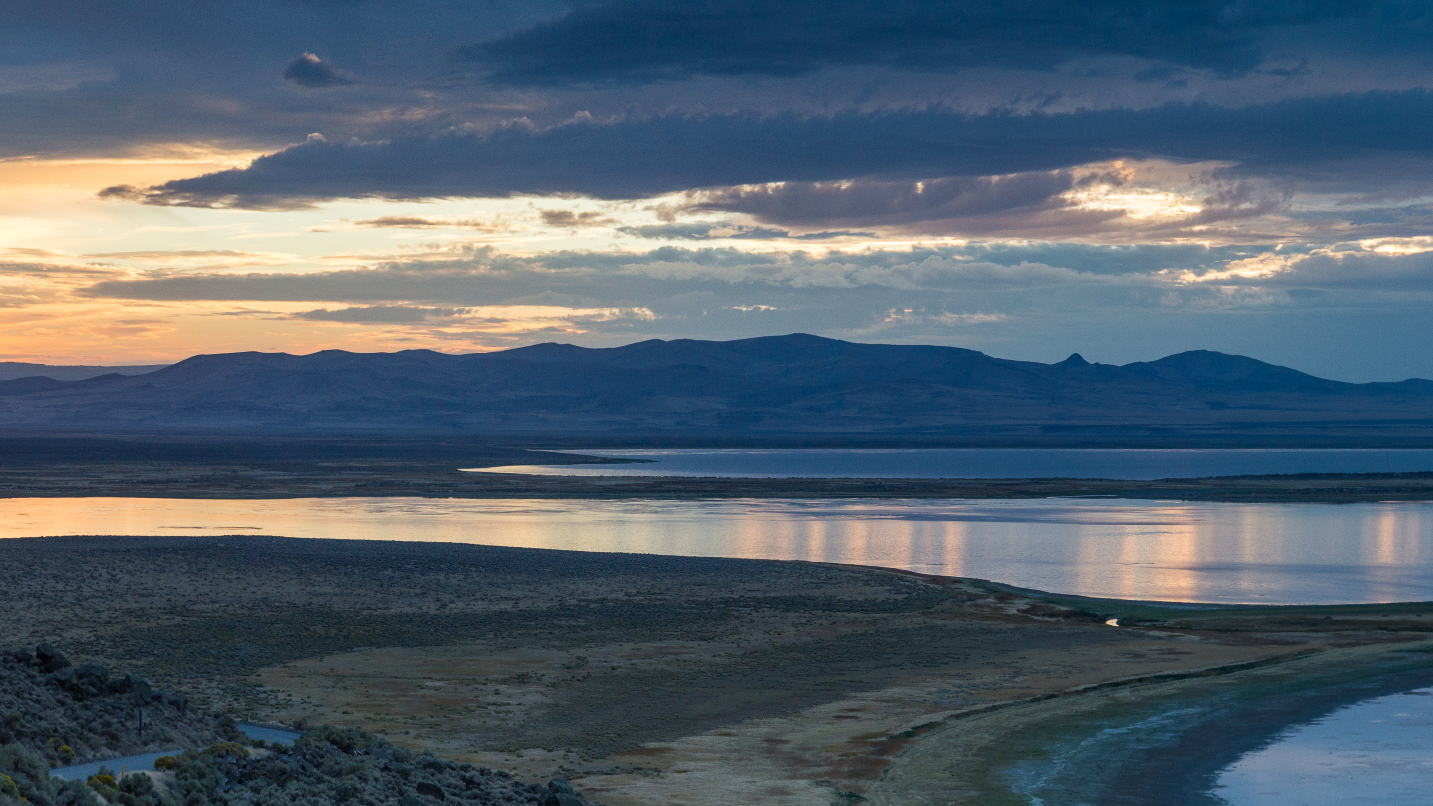
If You Go:
Wherever you go to enjoy the stars, we encourage you to follow a few tips for the best experience. Wherever you go, do not trespass — be respectful of private property. If you’re looking for clear skies, check the forecast to avoid heavy cloud cover. If you’re new to night-time excursions consider joining a guided night hike, attending a star-party event or participating in a ranger-led stargazing experience offered at places like the Prineville Reservoir State Park. Be prepared as you travel to remote areas like the Oregon Outback, where cell service and gas stations are limited. You may want to bring a camera and tripod, telescope and a paper map along with your Ten Essentials, and download an app for stargazing. Support and be respectful of nearby small communities as you travel, and always be sure to pack everything out.
